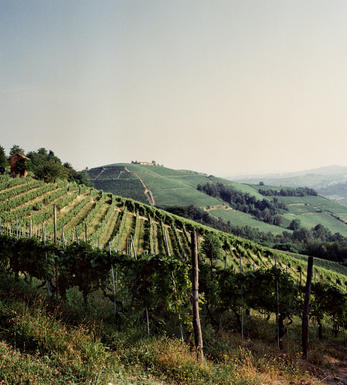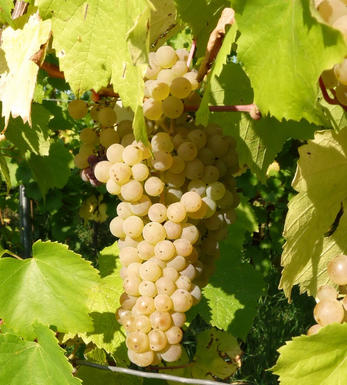
About this WINE

Marco De Bartoli, Sicily
Marco De Bartoli seems to have single-handedly restored (rescued?) the good name of Marsala, two hundred years after the British put it on the map (and before the Italians reduced it to a mere cooking ingredient). The 20ha family baglio (cantina/winery) close to the Sicilian town of Marsala is now also producing a range of sweet passito, fine dry white and excellent sparkling wines.
Scion of two industrial producers, Pellegrino and Mirabella, in 1978 Marco De Bartoli chose the lonely route to quality, deciding to grow and vinify the fruit himself in-house. To re-inforce this message he launched their flagship wine: ‘Vecchio Samperi’, named after the location of their baglio/farm, ‘Samperi’: a 100% ‘perpetuum’/solera aged 100% Grillo wine, it’s an original ‘Marsala’ made without fortification or the adding of ‘mistella’ (caramelised sweetner), perpetually racked to produce a fine, dry, delicate ‘rancio’ style wine. Alongside, De Bartoli also produces a range of classical, English-style, quality Marsala Superiore Riserva, from his own vineyards, using only Grillo (for quality) and not adding Inzolia or Catarratto (for quantity).
His children, Renato, Sebastiano and Giuseppina have now succeeded their father, continuing along the path of quality, but their campaign is to further promote Sicily’s autochthonous (indigenous) grape varieties (in the face of the sea of international ones), notably local Grillo, Zibibbo, Catarratto and red Pignatello (Perricone), through dry still and sparkling wines (the latter called ‘Terzavia’ in reference to the three ways in which Grillo can be vinified: oxidative, still white and sparkling!)
And since 1986 they have been producing a sweet Passito on the island of Pantelleria, close to Tunisia. Here the family own 8ha of Zibibbo vineyards (Muscat di Alessandria/Canelli) at the contrada/frazione of Bukkuram, making only a couple of thousand cases a year.

Marsala
Historic fortified wine style of the Marsala zone, in the west corner of Sicily, whose reputation was built by the British during the mid-18th century, fresh from creating Port, and keen to have options as they fought Bonaparte! British merchants would tour round the small artisan producers of white wine from the Grillo, Catarratto and Inzolia grapes, who would keep their wines in botte grande for years, waiting for the knock on the door. These would then be blended together in a solera (‘perpetuo’) system and, if necessary, fortified with acquavite prior to beginning its journey to England.
The quality industry was taken over by the new fledged Italy in 1870, led by the likes of Florio, but then subsequently ruined by the large Bourbon estates, who, after WW2, turned it from a high quality, artisan product – a stravecchio wine – into a volume product, adulterated with ‘mistella’ (grape concentrate and brandy). The rise of the cooperative movement (‘cantine sociale’), along with the fashion for sweet carbonated drinks (eg Coke), exacerbated the problem. Marsala became an industrial product, and preferred cooking ingredient. But since 1978, Marco De Bartoli has led a counter-revolution to restore the good name of Marsala by using wine made from his own estate.
Marsala is classified into three styles: Vergine (the finest, aged for 10+ years, fortified but without mistella); Superiore (the middle level, the ‘British style’, aged for 5 yrs, with added ‘mistella’ and fortified) ; and lastly Fine, aged for 2 yrs, mistella added and fortified)
Marco De Bartoli is regarded as the region’s top quality producer, making wines that echo those of their heyday. His flagship wine is Vecchio Samperi: a ‘stravecchio’ wine in the original, authentic style of Marsala, made without ‘mistella’ or fortification.
Recommended Producers: Marco De Bartoli

Muscat
Muscat refers to a family of grapes of which there are around 200 different branches. Muscat Blancs à Petits Grains is the most noble of the variety and makes the best and most distinctive wines. It is the only wine grape that produces wines that actually taste of grapes, and can produce a range of wines from pale, bone dry whites, through to golden yellow, rich, sweet wines.
In Alsace, two types of Muscat are grown - Muscat Blancs à Petits Grains and Muscat Ottonel. They are usually blended to produce wines that tend to be light and dry with a fruity, musky character and an intensely aromatic bouquet. Intensely sweet late harvest wines are also produced.
Muscat de Beaumes de Venise is one of the best Vin Doux Naturels in France. This is produced by adding grape spirit to the partly fermented must - the best producers, such as Domaine de Durban, produce deliciously sweet wines with rich grapey aromas balanced by fruity acidity.
In Australia Muscat à Petit Grains is used to produce the fortified Liqueur Muscats of Victoria (esp. Rutherglen). These are extraordinary wines - dark and treacly with a sensational perfume of orange, raisins and honey.



Buying options
Add to wishlist
Description
From Zibibbo (Muscat) vines grown on the volcanic (pietra nera) soils of the Mediterranean island of Pantelleria comes this dry white wine from one of Sicily's great fine wine producers: Marco de Bartoli. Pale in colour, an extraordinary and exhilarating nose intense with musky/grapy/smoky saline/mandarin skin aromas. The result is salivating and penetrating. By comparison, the palate is full and super-refined, even at only 11.5% alcohol. Understated flavours of citrus pith, it is incredibly sapid, I expect due to the proximity of the sea, along with a silk thread flavour profile, and fragrant too. Calls for roasted almonds!
David Berry Green
wine at a glance
Delivery and quality guarantee